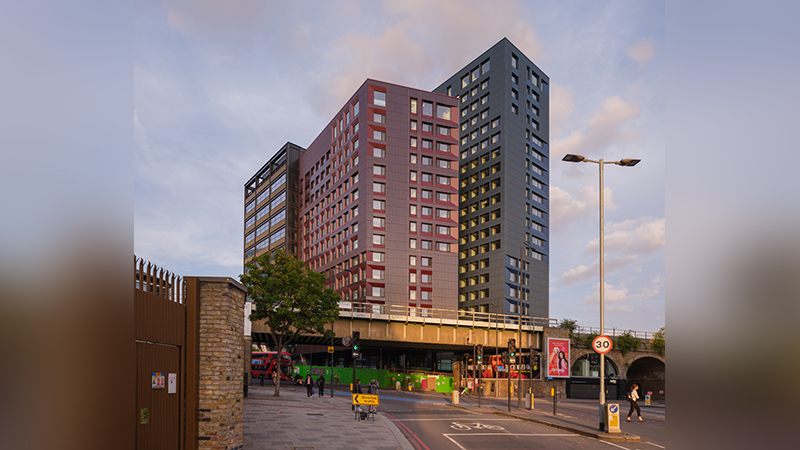British Land and Landsec should both be in the sights of equity investors hungry for REIT returns, according to the real estate research team at investment bank Berenberg.
Analysts Miranda Cockburn and Yudith Karunaratna said the pair are still seen as “proxies” for the UK real estate sector, despite representing less than a fifth of the country’s REIT sector, a proportion that has halved over a decade.
The analysts, who have initiated coverage of both REITs with a “buy” recommendation, said both provide “a less concentrated exposure to what is still an uncertain London office market”, as well as access to the retail property sector, “which we believe has bottomed and should show selective growth”. They added: “Investors can take their pick of retail warehouses (British Land) or destination shopping centres (Landsec).”
Trading at a discount
BL and Landsec have traded at an average 33% discount to NAV “fairly consistently” since 2016, Cockburn and Karunaratna said, with their shares underperforming the wider REIT sector during the Covid-19 pandemic, when investors’ attention turned to industrial property.
“The companies’ strategies have been shunned by equity investors for many years, the management teams at the time having managed to miss the single most important structural change in the real estate sector this century – the rise of distribution and decline of retail [under past chief executives],” the pair said.
They noted that the REITs’ share prices had performed “broadly in line” over the past five years until a divergence last year when British Land’s fell and the company exited the FTSE 100.
“We see little property-based rationale for this difference other than British Land’s greater exposure to the City office market, which is struggling compared with the West End,” they said.
“However, more recently the shares have recovered some of the difference in performance. When looking at British Land’s discount rating to the wider UK REIT sector over the past 10 years, one can see how the stock derated, particularly during the Covid-19 pandemic, when investors exited the sector through larger, more liquid stocks. However, the gap has narrowed over the past year, and we expect a further improvement in rating in 2024.”
More meaningful total returns
They continued: “An increasing focus on asset management and earnings-accretive development in a higher-interest-rate environment as well as a convergence in subsector performance and reinvigorated management teams, means that Landsec and British Land are now better placed to offer investors more meaningful total returns, in our view.”
Returns from REITs are likely to start being driven once again by activity in the occupational markets, Berenberg’s team said. That would make backing companies with a diversified model a smart move given their ability “to switch between subsectors and chase growth”.
“We like, for example, British Land’s expansion into London urban logistics and life sciences, both areas with attractive supply and demand dynamics and therefore continuing rental growth prospects,” they said. “We are less convinced about both companies’ exposure to long-term mixed-use regeneration schemes, not because they will not deliver, but because we believe the stock market finds it harder to assign full value to such projects.”
The Berenberg team also praised British Land’s campus strategy, which it compared to Shaftesbury Capital’s “control over its London villages”, as well as its diverse development pipeline.
Gulf in performance
Other analysts have seen more to differentiate the two REITs. In November, TR Property Investment Trust fund manager Marcus Phayre-Mudge said the “gulf in performance” between British Land and Landsec “has never been starker” owing to their focus on debt.
He said the fund’s largest pair trade – in which an investor offsets long and short positions in certain stocks – was to own shares in Landsec but not British Land.
“The gulf in performance between the two names has never been starker, with the difference over six months, in total return terms, of -13.8% (-1.6% versus -15.4%),” Phayre-Mudge said. “The major differentiation between these two large, diversified, UK-only businesses was their attitude to debt, with Landsec working hard to reduce leverage through selling long income, mature, low-yielding assets, particularly London offices.”
To send feedback, e-mail tim.burke@eg.co.uk or tweet @_tim_burke or @EGPropertyNews











